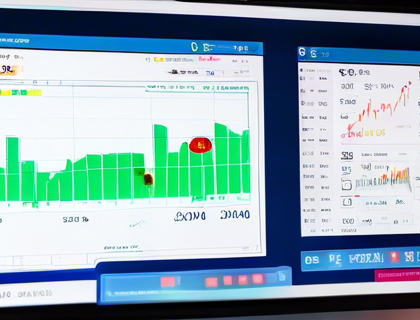Sexing Technologies is a company specializing in providing accurate sex determination services for various animal species. They use advanced techniques to accurately identify the gender of animals, which is crucial for breeding programs and effective management of livestock.
In addition to their accurate sexing services, Sexing Technologies also offers additional solutions such as genotyping and genetic improvement to assist breeders in achieving their desired breeding goals, resulting in healthier and more productive animals. Through their innovative technologies and expertise, Sexing Technologies is ensuring that breeders have the necessary information to make informed decisions and improve their breeding programs.
The Evolution Of Sexing Technologies
Advancements in technology have revolutionized the sexing industry, shaping its future. The evolution of sexing technologies has brought about innovations that are changing the way we approach and engage in sex. With the help of technology, we now have tools and devices that allow for accurate and efficient sex determination.
These advancements have not only simplified the process but also made it more accessible and reliable. From DNA testing to ultrasound technology, these innovations have become integral to various industries, including agriculture, medical research, and even human reproduction. The ability to determine the sex of animals or embryos plays a crucial role in breeding programs, species conservation, and genetic research.
As technology continues to advance, we can expect further improvements in sexing technologies, enabling us to make more informed decisions and shaping the future landscape of various industries.
The Benefits Of Modern Sexing Technologies
Modern sexing technologies offer numerous benefits, including improved efficiency and accuracy in sex determination. This advancement reduces costs and enhances profitability for farmers. These technologies also play a crucial role in breeding programs, enabling enhanced genetic selection. By utilizing these innovative tools, farmers can effectively target desired traits and enhance their livestock production.
Implementing sexing technologies not only streamlines the breeding process but also optimizes resource allocation by ensuring that only the desired sex is produced. This precision reduces the need for manual sexing, saving time and effort. In addition, these advancements facilitate better breeding decisions, ultimately leading to improved genetic diversity and overall animal health.
With the advent of modern sexing technologies, farmers can embrace more effective and sustainable agricultural practices.
Ethical Considerations And Challenges In Sexing Technologies
Sexing technologies present ethical considerations and challenges due to the manipulation of sex. Society’s perception and acceptance of these technologies need to be taken into account. The implications of controlling the sex of offspring raise ethical concerns that must be addressed.
Challenges arise in ensuring that sexing technologies are used ethically and responsibly. It is important to engage in a dialogue surrounding these issues and establish guidelines to protect individuals and maintain social ethics. By understanding the ethical implications and addressing the challenges, we can work towards finding a balance between the use of sexing technologies and ethical practices.
Through careful consideration and regulation, we can navigate the complexities of this technology in a responsible and ethical manner.

Credit: www.iotforall.com
Conclusion
Sexing technologies have revolutionized various aspects of society, from reproductive technologies to gender identity. These advancements have provided new possibilities for individuals and couples who desire to start or expand their families. Moreover, these technologies have encouraged discussions around gender, challenging traditional norms and offering opportunities for greater inclusivity.
As we move forward, it is essential to prioritize the ethical implications of sexing technologies. Ensuring the safety, privacy, and well-being of individuals involved is crucial in this rapidly evolving field. Additionally, policies and regulations should be put in place to prevent misuse of these technologies and protect against discrimination.
While sexing technologies have undoubtedly brought about positive changes, it is important to acknowledge the potential risks and drawbacks. We must always balance the exciting capabilities of these technologies with the potential ethical concerns they raise. Overall, sexing technologies have the potential to shape the future in profound ways.
Through critical dialogue, careful regulation, and responsible use, we can harness the power of these advancements to create a more inclusive and equitable society for all.








